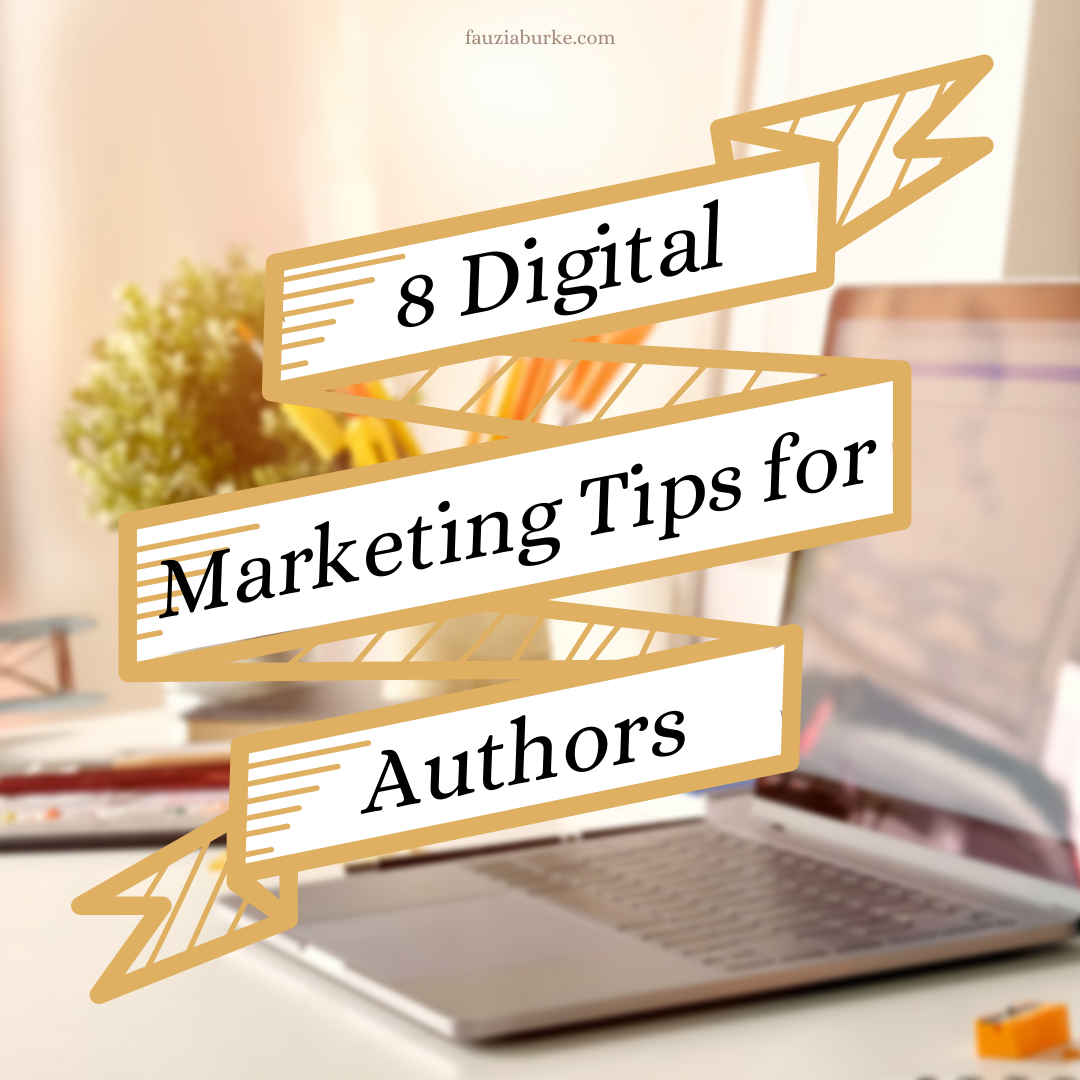8 Digital Marketing Tips for Authors
 When you’re an author, your only job is to write, right? Wrong. The reality of today’s publishing landscape is that authors not only need to be fantastic writers, they also need to be publicists, marketers, and overall cheerleaders for their books. But with all these extra hats an author needs to wear, how do you find the time? And where do you start?
When you’re an author, your only job is to write, right? Wrong. The reality of today’s publishing landscape is that authors not only need to be fantastic writers, they also need to be publicists, marketers, and overall cheerleaders for their books. But with all these extra hats an author needs to wear, how do you find the time? And where do you start?
If you’re struggling to prioritize your digital marketing efforts, start with these 8 tips:
1. Start now. Remember, it’s never too early to start. Even if your book is just in the idea phase, now is the time to start building your brand and finding your audience because it takes time. Ask yourself: Who is your book for? Answer that question on paper (yes, write it down) and a picture of your audience will begin to emerge. Once you can describe your audience, you will have a better understanding of where you can find them online. Here’s a worksheet to help you.
2. Invest often. You will get as much out of your personal brand as you put into it. Think of who you want to help. Think of the problems you want to help solve for your audience and share your knowledge. Create connections through online conversations, always offering value with solutions, ideas, resources or expertise. Give to others what you hope to get back in return.
3. Decide what works for your audience. Busy authors have to figure out the best options for publishing their book while simultaneously working on branding and marketing. Don’t make the mistake of following the next shiny object online. Just because a social media platform exists or there’s an app for it, doesn’t mean you have to use it. Take time to consider what social media platforms make sense for your brand. To avoid overwhelm, start with a website and one or two social media platforms. You don’t have to do everything all at once.
4. Protect your good name. Monitor your digital reputation. Your name and reputation are at stake when you build your brand. You can get help with your social media efforts, but make sure you invest your own time to safeguard your brand. If you outsource some of your social media efforts, make sure all the messaging is consistent with who you are and your personal brand.
5. Name your goals. Identifying your goals for writing your book will help you prioritize. Nonfiction writers are often driven to write a book to shed light on an untold story, help others with their expertise, build a business, or acquire speaking engagements. What’s your top goal? Keep your top goal (or two) in mind to decide how to spend your time online. Here’s a worksheet to help map out your goals.
6. Determine your value proposition. Who will benefit most from your book? Read your answer to this question often as it will give you the motivation to do the continuous work it takes to promote your book and build your brand.
7. Know your small efforts count. You don’t have to go viral to gain an audience. Sustained small efforts to keep people talking can be just as effective as a campaign that goes viral. Your ongoing conversation with your readers can result in speaking engagements, paid blog posts, interview opportunities, more social media followers, more traffic on your site, increased sales, and recognition and expansion of your personal brand. Think of what you can do daily to keep the conversation going.
8. Control your message. When you engage with your audience online ask yourself: Does it entertain or delight? If it doesn’t, don’t share it.
If your true passion is writing, I know marketing can appear daunting. Take a day-by-day approach and realize every effort counts. As I tell many of my clients, sometimes waiting to see the rewards from your efforts is like waiting for a baby’s first smile. You just have to be patient, because your day will come.
I’d love to hear your thoughts, please join the discussion on my Facebook page.
© 2020 Fauzia Burke. All Rights Reserved.
